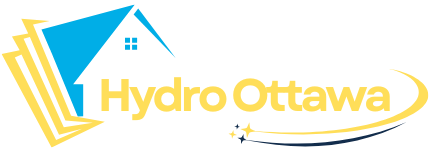Home is where the heart is, but it can also be where the leaky roof is. If those DIY adventures have turned into a never-ending saga of home repairs, a credit union home improvement loan might just be the superhero your house needs. With competitive rates and flexible terms, these loans can help transform your fixer-upper into the palace of your dreams without breaking the bank.
Imagine finally tackling that kitchen remodel or giving your bathroom a much-needed facelift. A credit union home improvement loan not only provides the funds but also supports your local community. So why not invest in your home and your neighborhood at the same time? It’s a win-win situation that’ll have you laughing all the way to the bank—after all, who said home improvement can’t be a little fun?
Table of Contents
ToggleOverview of Credit Union Home Improvement Loans
Credit union home improvement loans enable homeowners to finance repairs and renovations effectively. These loans generally feature competitive interest rates which can be lower than those found in traditional banks. Flexibility in loan terms often makes them attractive for borrowers seeking manageable repayment options.
Many credit unions offer personalized service and local expertise, focusing on community members’ needs. Borrowers typically experience a streamlined application process, reducing the time and stress associated with securing funds. Homeowners can access various loan types, such as personal loans or home equity loans, depending on individual financial situations and goals.
Eligibility requirements may vary, yet many credit unions consider factors beyond credit scores, including relationships with members. A local credit union often supports projects that enhance homes and, consequently, neighborhood values. Approval for a loan can lead to significant improvements, ranging from kitchen renovations to energy-efficient upgrades.
Investing in home improvements through a credit union loan not only enhances personal living spaces but also fosters community development. Renovating homes supports local businesses, from contractors to suppliers. Homeowners find that tackling upgrades through these loans contributes positively to their finances and adds value to their properties.
This funding approach aligns with both personal aspirations and community interests, emphasizing the win-win scenario for everyone involved. Homeowners looking to enhance their living environments may find credit union loans an excellent resource to achieve their dreams.
Benefits of Choosing Credit Union Home Improvement Loans

Credit union home improvement loans offer several benefits that make them a smart choice for homeowners. With competitive rates and personalized service, these loans help facilitate essential renovations and repairs.
Lower Interest Rates
Interest rates often stand out as a significant advantage of credit union loans. Typically, these rates are lower than those offered by traditional banks. Borrowers can save money on monthly payments and overall interest costs. Many credit unions prioritize member-friendly policies, leading to favorable lending terms. For homeowners, this means gaining more financial flexibility while pursuing home projects.
Flexible Repayment Terms
Repayment terms for credit union home improvement loans also prove advantageous. Credit unions usually offer various options tailored to meet individual borrower needs. Whether seeking a short or long-term loan, borrowers can find a plan that suits their financial situation. Simplified repayments make managing loans easier for homeowners, allowing them to focus on their renovations. With personalized terms, credit unions support borrowers through every step of their projects, creating a less stressful experience.
Eligibility Criteria for Credit Union Home Improvement Loans
Eligibility for credit union home improvement loans often depends on several key factors, ensuring that borrowers meet specific guidelines set by the credit union.
Credit Score Requirements
Credit scores play an important role in loan eligibility. Many credit unions look for a minimum score, often around 620, though some may accept lower scores. Specific criteria may vary based on individual financial situations. Higher scores typically lead to better interest rates, thus saving borrowers money over the loan term. Other considerations may include a borrower’s credit history and any outstanding debts. It’s advisable for applicants to review their credit reports for accuracy before applying.
Income Verification
Income verification helps credit unions assess borrowers’ ability to repay loans. Lenders often require proof of income, which could include pay stubs, tax returns, or bank statements. Steady employment history strengthens applications, giving lenders confidence in borrowers’ financial stability. Some credit unions may also evaluate debt-to-income ratios to ensure borrowers can comfortably handle monthly payments. Different income sources, such as alimony or rental income, may be considered. Providing accurate documentation streamlines the application process and increases chances of loan approval.
How to Apply for a Credit Union Home Improvement Loan
Applying for a credit union home improvement loan involves a few simple steps that homeowners can follow. Understanding the required documentation streamlines the process.
Required Documentation
Homeowners must gather specific documents to support their loan applications. Pay stubs or tax returns serve as proof of income, helping lenders assess repayment ability. Borrowers should also collect recent bank statements that demonstrate financial stability. A valid identification document, such as a driver’s license or passport, helps verify identity. Credit unions may request a detailed list of planned home improvements and associated costs, which assists in evaluating the loan amount. Preparing these materials ahead of time can simplify and expedite the application process.
Application Process
Initiating the application process is straightforward. Homeowners begin by contacting their chosen credit union, either online or in person, to express interest in a home improvement loan. Completing an application form is the next step, providing essential personal and financial information. Once submitted, a credit union representative reviews the application and documentation. Follow-up questions may arise, especially concerning income verification or planned renovations. After evaluation, the credit union communicates the loan decision, which may take a few days. If approved, borrowers receive details about their loan amount and repayment terms, allowing them to start their home improvement projects confidently.
Comparing Credit Union Home Improvement Loans with Other Options
Credit union home improvement loans stand out against other financing options due to their competitive interest rates. Often, these loans feature lower rates than traditional bank loans, making them appealing to borrowers. Homeowners seeking flexibility will find credit unions offer various repayment terms that cater to diverse financial situations.
When comparing personal loans, credit unions frequently provide a more personalized service. Borrowers benefit from local expertise and a streamlined application process. Many financial institutions prioritize member relationships, allowing for greater flexibility in qualifying criteria beyond mere credit scores.
Home equity loans tend to require sufficient equity in the home, while credit unions typically assess eligibility using various factors. Credit scores remain important, yet many credit unions allow lower score thresholds compared to banks. Approval processes generally consider income verification and debt-to-income ratios as key evaluations of a borrower’s ability to repay.
Homeowners often appreciate the ease of the application process at credit unions. Gathering required documentation such as proof of income, recent bank statements, and identification simplifies their experience. Listing planned home improvements with estimated costs will aid credit unions in determining appropriate loan amounts.
Borrowers considering other options may find them lacking in community support. Utilizing credit union loans not only enhances personal living spaces but also fosters local development by supporting regional businesses. Choosing a credit union often means investing in one’s home while contributing to the growth of the local economy.
Opting for a credit union home improvement loan is a smart move for homeowners looking to enhance their living spaces. With competitive rates and flexible terms these loans provide an accessible way to finance renovations. The personalized service offered by credit unions ensures a smoother application process making it easier for borrowers to navigate their options.
By choosing a credit union loan not only do homeowners invest in their properties but they also contribute to local economies. This dual benefit makes credit union home improvement loans an attractive choice for those ready to transform their homes while supporting their communities. Embracing this financing option can lead to significant savings and a more enjoyable home renovation experience.







